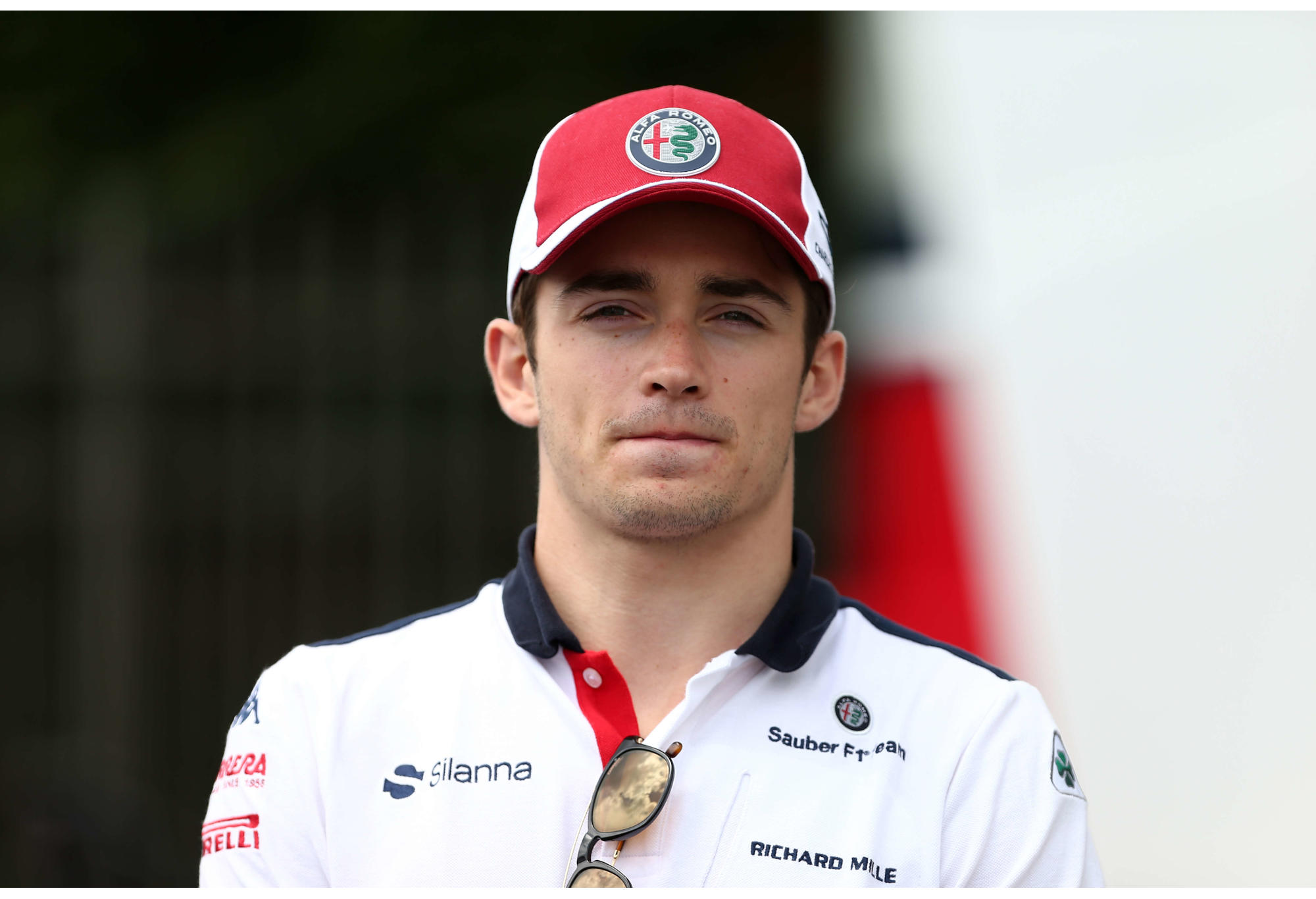Japanese Grand Prix talking points: Verstappen returns to winning ways as Perez solidifies grip on Red Bull seat
Red Bull and Max Verstappen vaulted right back to the top of the charts with a win in Suzuka, after his DNF in Melbourne.

Ahead of this weekend’s Singapore Grand Prix Ferrari confirmed 2018’s favourite on again, off again rumour by announcing Charles Leclerc as Kimi Raikkonen’s replacement from next season.
Raikkonen, as an added twist, will switch into Leclerc’s vacated Sauber seat on a two-year deal that will take him past his 41st birthday.
But as much as the long-running whispers took much of the surprise out of the announcement, the fact that this straight swap is happening at all is regardless out of character for Ferrari and warrants inspection.
On Raikkonen’s part the deal makes sense enough. If Ferrari was determined to have him leave the team but the Finn was equally keen to continue racing, moving to Sauber, which is beginning to resemble a Ferrari satellite constructor, is a logical move. Not only is Hinwil where Kimi started his career, but he’ll also now have a role in lifting it up the grid as the final chapter of his career.
But Leclerc on the other side of the equation is a more interesting prospect, because for all his impressive performances in his rookie 2018 season, his Ferrari switch both breaks Scuderia traditions on hiring only experienced drivers and sets the Italian marquee on a new and interesting course in the medium-term future, particularly regarding Sebastian Vettel.
One question that immediately arises is what Leclerc’s promotion means for that other long-established Ferrari tradition of having leading and support drivers.
Since Sebastian Vettel’s recruitment in 2015 there has been no question about who the number one driver at Ferrari is, with the German confidently having the measure of teammate Raikkonen.

Sebastian Vettel. (GEPA Pictures/Red Bull Content Pool).
Of intrigue, however, have been various key moments, particularly over the last 12 months, at which the Ferrari pit wall has seemed unwilling to pull the trigger on an overt team-order action against Raikkonen.
The Italian Grand Prix is a prime example. Though Raikkonen is out of the championship fight, the team chose to give him the superior qualifying strategy because it was his turn according to an internal race-by-race order.
Arrivabene’s comments to Sky Sport Italia regarding Mercedes deploying Bottas to benefit Hamilton’s race strategy — “We have drivers, not butlers,” he said — may also point to a softening of this preferred-driver approach.
This raises questions over Vettel’s place in the team, because whether explicitly laid out in his contract or not, the four-time world champion surely arrived at Ferrari assuming his status at top dog would be secure.
Somewhere along the way, however — perhaps it was in Vettel’s relatively scrappy 2016 season, when he beat Raikkonen by only 26 points in the standings — former Ferrari CEO Sergio Marchionne appears to have decided that Vettel would do well with more pressure to perform, which ultimately led to the plan to promote Leclerc to the senior team.
But Leclerc is of course not just a quicker version of Raikkonen deployed to hurry his new teammate along; he’s Ferrari’s future and the most highly rated paddock prospect today.
His promotion is therefore with an eye to seasons beyond 2019 as much as it’s aimed at revitalising the line-up next season, and when you consider it like this, Ferrari in 2018 is coming over shades of Red Bull Racing 2014.

Charles Leclerc (Photo by Marco Canoniero/LightRocket via Getty Images)
Red Bull Racing at that time, whether by contract or not, was likewise Sebastian Vettel’s team, the German having comfortably dispatched teammate Mark Webber to make himself a four-time world champion by the end of 2013.
But enter Daniel Ricciardo, who put away the reigning title-holder to the tune of 71 points, including three victories to Vettel’s none but not including the 18 points the Australian lost after disqualification from that year’s Australian Grand Prix.
Vettel left for Ferrari at the end of that season, meaning 2014 remains hanging in the breeze as a great unanswered question. That’s no disrespect to Ricciardo, who has since made a name for himself as one of the best in the business, but assessing how much of that result was down to the change in regulations, demotivation on Vettel’s part or particularly strong form on Ricciardo’s part can never be known.
Leclerc, however, offers the sport a proxy response. Should he arrive at Ferrari and immediately give Vettel a run for his money — or, more spectacularly, lead Vettel in the standings to become Ferrari’s chief title challenger — then serious questions will be asked of Sebastian’s ultimate ability.
The switch is timely in this regard, with those questions already being formed after the German’s error-strewn 2018 campaign to date in the face of an ever-improving Lewis Hamilton. The fact Vettel has been unable to convert Formula One’s fastest car into a championship lead begs the question of whether he’s now at the upper reaches of his ability.
That is hardly a slight on a man who has claimed four world titles; instead it is the beginning of an assessment as to where exactly Vettel ranks amongst the sport’s multiple-title-winners.
Therefore the 2019 season is more than just a changing of the guard at Ferrari — it is a test of the strength of Vettel’s legacy at the peak of his powers in Formula One.